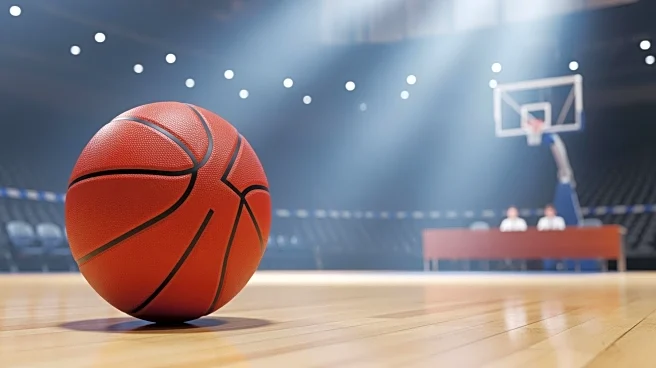What's Happening?
A recent study has found that engaging in badminton and basketball can significantly enhance memory in young adults. The research involved nearly 600 participants divided into three groups: low-intensity aerobic exercise, moderate-intensity exercise, and a control group with no structured exercise program. Over eight weeks, participants in the exercise groups performed three 30-minute sessions per week. The low-intensity group engaged in badminton rallies, while the moderate-intensity group participated in basketball dribbling drills. Both activities were designed to maintain specific heart rate levels, with badminton at 57-63% of VO2 max and basketball at 64-76%. The study revealed improvements in declarative knowledge, which is the ability to recall and describe facts and concepts, with the basketball group showing more significant gains.
Why It's Important?
The findings underscore the cognitive benefits of regular aerobic exercise, even at lower intensities. This challenges the notion that only high-intensity workouts are beneficial for health. The study highlights the accessibility and affordability of badminton and basketball, which can be played at leisure centers or in DIY setups at home. The research suggests that these activities not only improve physical health but also enhance brain function, particularly in areas related to learning and memory. This could have implications for educational strategies and public health policies, encouraging more people to incorporate regular aerobic exercise into their routines.
What's Next?
Further research is needed to explore the effects of different types of activities on memory and cognitive function. The study opens avenues for investigating how various forms of exercise can be tailored to maximize cognitive benefits. Additionally, the social and interactive elements of these sports may offer additional mental health benefits, potentially influencing future exercise recommendations and programs.
Beyond the Headlines
The study also suggests that the mood-boosting and stress-reducing effects of exercise may contribute to a more optimal environment for memory formation. The cognitive aspects of badminton and basketball, such as coordination and problem-solving, may further enhance learning processes. These findings could lead to a broader understanding of how physical activity influences mental health and cognitive development.









